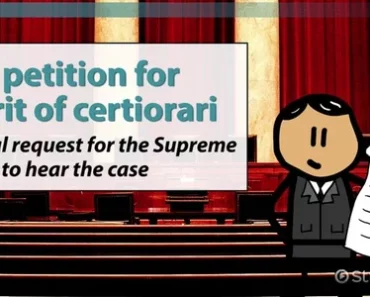If your financial aid isn’t enough to cover your college costs, you can write an appeal letter to request more money. The process is relatively straightforward and you can find tips online that will help you get started.
The key to writing a successful appeal is to provide the school with all of the information they need to make a new decision. This means being specific, concise and respectful.
Be specific.
A financial aid appeal letter is often the only chance a student and their family has to request more funding than was offered during their original application. Typically, this type of appeal letter is written by students or parents who have experienced a significant change in their financial circumstances since submitting the Free Application for Federal Student Aid (FAFSA).
A successful financial aid appeal can help you get the money you need to pay for school without having to take on more debt. The key is to be as specific and clear as possible when writing your appeal letter.
It’s best to include detailed reasons why you need more funding and how much you can afford. It’s also important to explain any unanticipated changes in your situation that have occurred. This can be anything from the death of a parent to a natural disaster.
You should also mention any competing financial aid offers you may have received from other schools. This can help bolster your case for a greater aid award and show the college you are serious about attending their school.
Another thing to remember is that schools are able to practice what is called professional judgment in reviewing financial aid. They will consider whether you have used all of your resources, including loans and grants, before asking for additional assistance.
While an appeal letter is typically the only chance a student and their family will have to request more funding, it’s important to be as specific as possible when writing it. This will increase your chances of success and help you avoid having to take on more debt.
Generally, the process of writing an appeal letter is relatively simple and follows a standard format. However, some schools have more specific procedures than others. You should find out exactly how to appeal from the financial aid office at your college before you start writing it.
To make your letter more personal, try addressing it to a particular person in the financial aid department. This can add a personal touch and helps you establish a respectful tone in your letter.
Be concise.
An appeal letter is a request for more money from a school’s financial aid office. If you’re going to write one, you need to be concise in order to convince the financial aid administrator that your circumstances have changed and you deserve more money.
Before you write your letter, be sure to research the guidelines for financial aid appeals at the college where you’re planning to attend. You can find these details on the school’s website or by contacting the financial aid department directly.
You should also be sure to send your letter via certified mail so that it arrives in the recipient’s mailbox without delay. This will give the financial aid administrator a sense that you’re a legitimate applicant, says Eric Kantrowitz, founder of education-focused consulting firm Swift Student.
It’s important to start your letter by thanking the person you’re writing to. Then, provide some background information about your family’s situation and why you’re requesting more money from the financial aid office.
Your letter should be no more than one page long and should include a cover letter that includes your name, address, date, and the names of all the people you’re writing to. You should also be sure to use proper grammar and spelling, as well as a clear, concise style.
The best way to make an appeal is by pointing out the circumstances that have changed since you submitted your FAFSA and CSS Profile. This could be the loss of a job or other source of income, or an unexpected expense that has negatively affected your financial situation.
If you have any corroborating documents, you should also include them with your letter. This includes things like death certificates, unemployment benefit letters, and doctor’s notes that support your story.
You should also be polite and respectful in your letter. You should avoid saying anything that might come across as hostile or demanding, which can be frustrating to the financial aid administrator.
A well-written appeal letter can save you thousands of dollars in financial aid. So be sure to take the time to do your research and carefully craft your letter.
Be respectful.
If your financial aid package was reduced or you were denied a scholarship or loan, you may be able to appeal the decision with a letter. The financial aid office of the school you’re attending will review your situation and determine whether or not to reconsider the original award offer.
When writing an appeal letter for financial aid, it’s important to be respectful. This will help you to make the case for additional funds that you need for college. The financial aid administrator will also be more likely to rethink your request if you show them that you’ve been through a difficult time and are working hard to resolve your situation.
A good financial aid appeal letter should address the financial aid administrator directly and explain what’s happening in your life. It should include details of why you need more money for college and what changes you have made that are making it harder for you to afford the cost of tuition.
The letter should be brief and succinct, and it should not be more than one page long. It should be addressed to the right person at the school, and it should contain any documentation that you have.
You should also thank the financial aid administrator for their consideration of your case. If you have a competing offer, include it in the letter and ask the school to match it.
In addition, you should make a quick follow-up phone call to the financial aid office and person you sent the letter to. This will ensure that your appeal gets the attention it deserves and will help your case go through faster.
If you’ve been disqualified from federal financial aid for academic reasons, you can use a financial aid appeal letter to get it reinstated. This will allow you to continue to receive assistance and stay in school.
There are many different situations that could result in a student being disqualified from federal financial aid. Some of the most common disqualifications are poor grades, poor financial status, and failing to meet academic progress requirements.
Be clear.
If you want to appeal your financial aid award, you’ll need to be clear about why and how you feel the decision was wrong. This will help you convince your appeals officer to change the decision.
If your situation has changed since you submitted the FAFSA or CSS Profile, it’s a good idea to include that in your letter of appeal. For example, if your family has lost a job and this has made your finances more difficult to manage, you should explain this in the letter. Also, if you have been offered better financial aid from other schools, make sure to mention that as well.
Appeals letters are usually no longer than a page in length, so choose your words carefully. You don’t want to write a long and drawn-out letter that takes up too much of your time and attention.
You should also use short, simple language that is respectful and easy to read. Your letter should include your name and address, along with a brief explanation of the reasons for your appeal.
The most important thing to remember is that the financial aid process is complex and can be time-consuming for your school’s staff, so be respectful of the process. Never complain or be rude to the financial aid office, the officer you’re writing to, or anyone else involved in your appeal.
Aside from addressing your letter to the right person, you should follow your school’s specific procedure for appeals and fill out any necessary forms or submit any supporting documents requested by the financial aid office. This will increase your chances of success and ensure that you have the best chance to convince the financial aid administrator to reconsider the original decision.
Using a tool like SwiftStudent can help you write an appealing letter, but it’s important to be aware of your school’s specific appeals policy before writing your letter. A good place to start is the school’s website.





